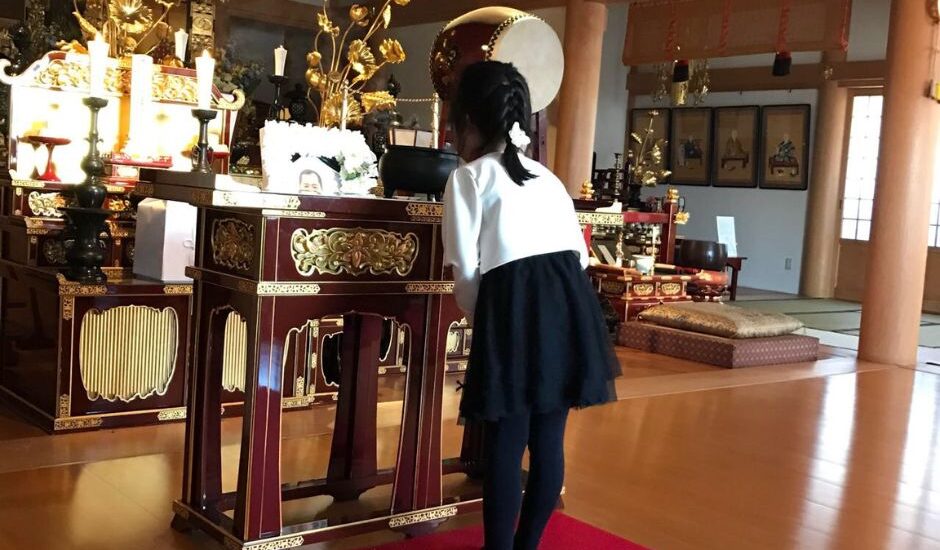If you have Japanese relatives or are close to someone from the country, there comes a time when you will be invited to a funeral or a death anniversary. The ritual is quite solemn and full of symbolism, making it a meaningful experience.

Life after death in Japan
When it comes to spiritual traditions, Japan is mostly governed by Buddhism and Shinto. For the more celebratory or positive aspects of life, like weddings, childbirth, careers, luck, and the like, they follow Shinto traditions. For more solemn experiences like funerals and death anniversaries, traditions follow Buddhism.
Unlike other religions that believe in reincarnation or an afterlife in heaven, the Japanese believe in the long process of one’s spirit cutting ties to the Earth and journeying to another place. Think of those still living as the cheerleaders of a deceased spirit as it travels to “The Pure Land,” which is why death anniversaries are held at key periods after death.

The funeral process
The starting point is the funeral, which is like a farewell ceremony. The event itself is quite symbolic, with many rituals led by a monk. The body is placed in a casket while loved ones place essential items that will accompany the spirit through its journey to nirvana. Things like prayer beads, a handbag, sandals, and gold coins, along with dumplings and a bowl of rice with chopsticks sticking out, go into the casket. Family members also include some of the deceased’s favorite items like a newspaper, cigarettes, or a book, basically like hand-carry luggage for the spirit.
As the body is cremated, its ties to the world are severed while the spirit’s journey to the afterlife officially begins. The deceased is given a new name, another symbol of cutting ties to its old identity so that the soul does not turn around or get distracted when loved ones mention their name moving forward.
All of this follows a schedule, starting with the family spending one night with the deceased’s body at home, followed by the wake where a monk reads a dialog between Buddha and a follower of “The Pure Land.” The grandiose funeral or memorial service, costing somewhere around ¥3,000,000, is held two days later. It is customary for invited guests to give money in special silk envelopes for the ceremony.

The pilgrimage after the farewell ceremony
After the cremation, the spirit undertakes a 49-day journey with seven trials every seven days. The family holds small services once a week to support the spirit and to make sure they pass the judgment period at the end. On the 49th day, a celebration is held, and the family completes their mourning period. They send thank-you gifts to those who attended the funeral.
Death anniversaries
The mourning period might be over; however, family and loved ones continue to remember the dead for many years to come. The first is a year after death, or “isshuki” (first death anniversary), followed by “san-kaiki” (two years after death).
Thereafter, death anniversaries are celebrated as follows:
Nana-kaiki: 6 full years after the day of death
Jusan-kaiki: 12 full years after the day of death
Junana-kaiki: 16 full years after the day of death
Nijusan-kaiki: 22 full years after the day of death
Nijunana-kaiki: 26 full years after the day of death
Sanjusan-kaiki: 32 full years after the day of death
Sanjunana-kaiki: 36 full years after the day of death
Yonjusan-kaiki: 42 full years after the day of death
Yonjunana-kaiki: 46 full years after the day of death
Goju-kaiki: 49 full years after the day of death
Hyakkaiki: 99 full years after the day of death

During each death anniversary, family and loved ones gather at the memorial hall where the deceased’s ashes rest. Everyone meets at a waiting hall before being called by a monk. The monk prays for the dead while everyone takes turns extending their best wishes to the deceased. After the prayer ritual, everyone gathers to the grave and burns incense.
The family then enjoys a meal, often a course of seasonal ingredients of the highest quality, while sharing stories of the deceased.
It is believed that on the 49th death anniversary, the spirit is completely free, and thus, the family can take home the deceased’s name card to serve as protection for the family.





